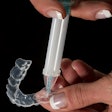
A study linking neurological damage with overuse of zinc-containing denture creams was delayed because of a reviewer who did not disclose he was a paid consultant for Procter & Gamble (P&G), the manufacture of Fixodent, according to a recent report by ABC News.
But the reviewer in question said the accusations are not true.
P&G has been at the center of dozens of lawsuits alleging that the zinc in its Fixodent denture adhesive products can cause numerous health problems and that the manufacturers failed to properly warn consumers about these risks. The lawsuits stem in part from a 2008 study that concluded that "denture cream contains zinc, and chronic excessive use may result in hypocupremia and serious neurologic disease" (Neurology, August 26, 2008, Vol. 71:9, pp. 639-643).
Last year, P&G issued a warning on its website regarding the potential health risks posed by excessive exposure to zinc in Fixodent denture cream. Now, in addition to informing consumers that Fixodent contains 4% zinc, the P&G website states: "Some reports suggest that excessive and prolonged zinc intake may be linked to adverse health effects."
The study, which was conducted by researchers from the University of Texas Southwestern Medical Center, was originally received by Neurology on October 30, 2006, and accepted in its final form on February 5, 2008.
Undisclosed relationship
Among the study's peer reviewers was Kenneth Shay, DDS, a dentist who practices in Ann Arbor, MI, and was a paid consultant with P&G at the time -- something he did not disclose to the journal when asked to review the study.
— Kenneth Shay, DDS
The ABC report claims that because of his relationship with P&G, Dr. Shay "lambasted the study," led the authors to "water down the study's findings," and "sent draft reports of the study to Procter & Gamble."
Dr. Shay called these accusations "libelous" and a "gross misrepresentation." He said that when he received the study for review, he raised concerns about the chemical analysis technique used by the authors and the unusual nature of the four subjects used in the study.
"The study was in fact four case reports," Dr. Shay told DrBicuspid.com. "All [subjects] were 20-plus-year denture users, yet all were in their 40s. All were using multiple tubes of the product per week (versus a tube in multiple weeks, which is more common). Some were even eating the product. I felt some comment was needed to point out that these were not normal denture users. They [authors] did not give readers any insight about how much adhesive would normally (with normal use) be ingested -- nor how much zinc would be ingested with normal use (versus the extreme overuse). They provided no information on the bioavailability of zinc in ingested adhesive (i.e., is zinc in adhesive even absorbed?). Finally, I felt they vastly overstated their conclusions -- they recommended that anyone who uses adhesive should have annual zinc levels checked. I felt that this was going far beyond the limitations (case report versus case-controlled study) of their information."
The study authors sent their resubmissions to Dr. Shay several months later, having addressed some, but not all, of his concerns, he said. He drafted a second review and shared the review and the draft of the article with a colleague at P&G.
Dr. Shay called this an "error" on his part.
"I did so out of wishing to provide a credible review," he said. "Having made my objections once and having them ignored, I wanted to make sure I was being accurate in restating them."
Dr. Shay never heard back from P&G and ultimately sent in the second review as he had originally written it, he said.
"Calling my recommendations lambasting is just alarmist journalism -- either that or willful ignorance of the peer-review process," he said. "I didn't recommend rejection. I recommended addressing the shortcomings and resubmitting as a letter to the editor because, in my experience, four case reports is pretty thin soup for an article."
A 'big mistake'
Dr. Shay also told DrBicuspid.com that while not disclosing the conflict of interest was a "big mistake" on his part, it was not done because he was trying to conceal anything.
Dr. Shay said he believes he was contacted by Neurology because of a review he had done on adhesives for the Journal of Contemporary Dentistry, a journal that was started and maintained by P&G.
"I took it for granted that they [Neurology] knew about my relationship with P&G and that was the reason they were contacting me -- for my presumed expertise," he said.
In addition, he said, in 2006 an Internet search involving his name would have turned up lots of links to P&G.
"In retrospect, I should have responded to the invitation to review [the study] with 'You do know that I have a relationship with the manufacturer of Fixodent, right?' but I didn't," Dr. Shay said. "I wasn't paid for doing the review. This was a professional courtesy that must have taken me two hours or more. So I really resent the implication that I was afraid I would lose out on the exciting chance to do a peer review (of which I do dozens yearly) if I disclosed the relationship."
Robert A. Gross, MD, PhD, editor-in-chief of Neurology, has released a statement saying that the journal has a well-established and well-known policy that authors and reviewers must disclose conflicts of interest, that Dr. Shay did not disclose any conflict of interest to Neurology, and that Dr. Shay improperly shared the manuscript in violation of the journal's confidentiality policy.
"The American Academy of Neurology considers any violation of these ethics policies to be egregious misconduct, and the Academy's General Counsel is reviewing its options with the editors," the statement reads.
Regarding reports that the publication of the study was delayed by two years, much of the delay was a result of the time it took the authors to resubmit a revision, according to Dr. Gross. The editorial office's review procedure was in line with standard time frames, he added.
Sharon Nations, MD, lead author of the Neurology study, told DrBicuspid.com that after receiving the reviews she and her co-authors made some changes and answered some questions or gave responses to things they did not think needed changing.
"This is standard procedure," she said. "I do not recall that we ‘watered down the report’ to any significant degree."
As for the delay in publication, she said that there is always some delay between the time a paper is accepted for publication and its appearance in the journal.
"However, the main delay in replying to the reviewers was due to my personal issues," she concluded. "Dr. Shay did not contact me or any of the other authors individually separate from his review. We were unaware of any communication he may have had with P&G."



















